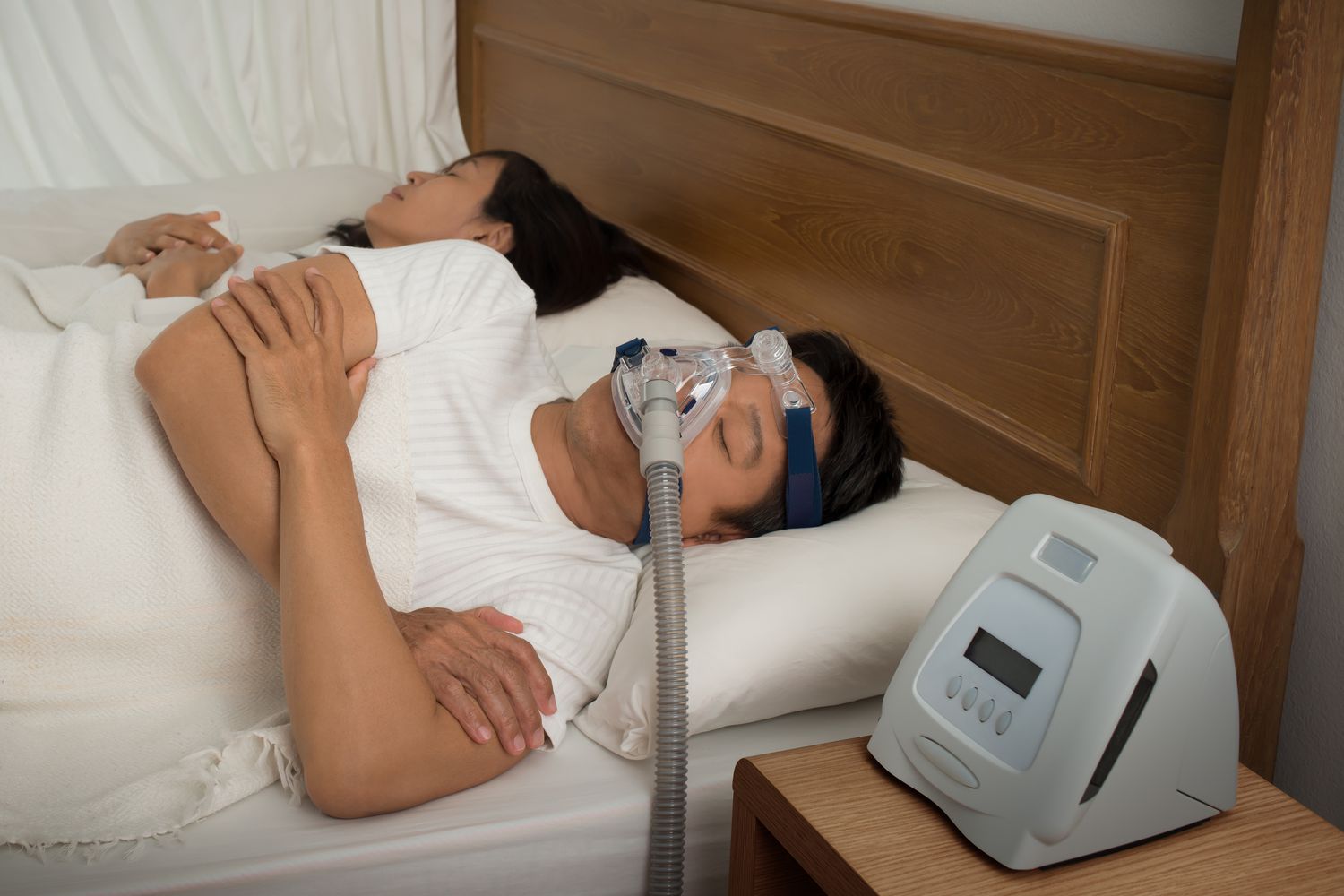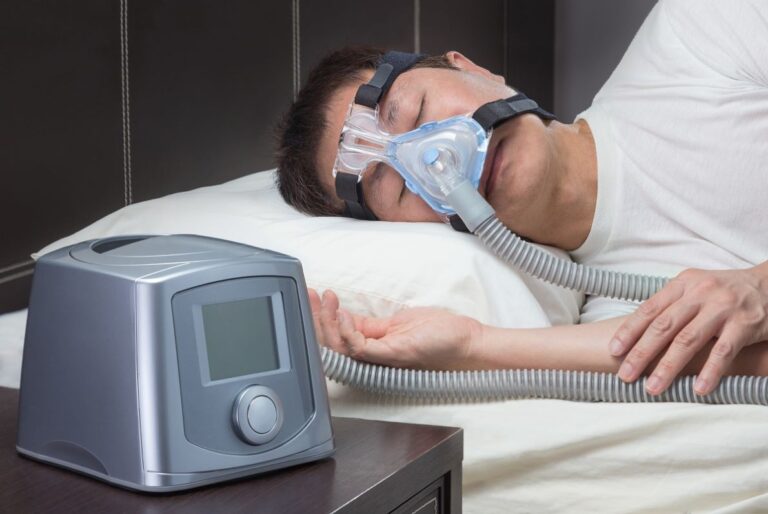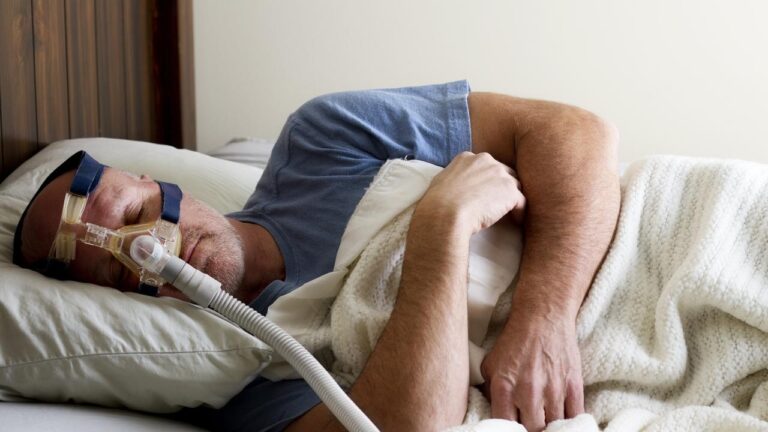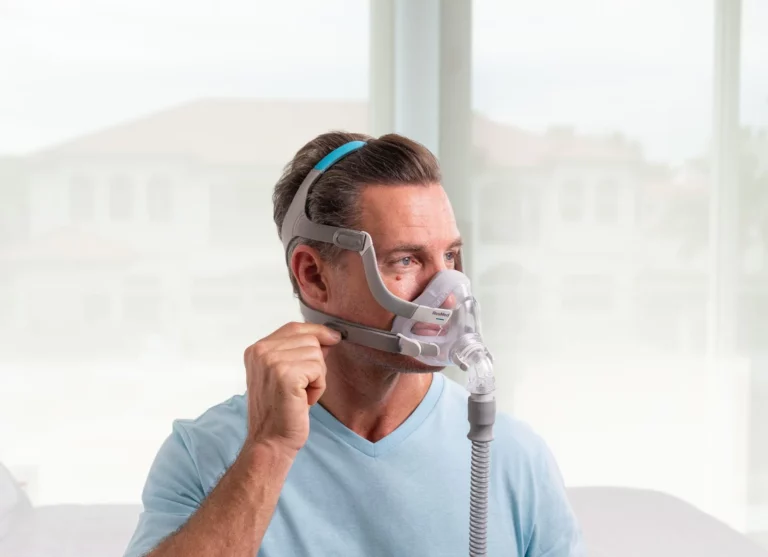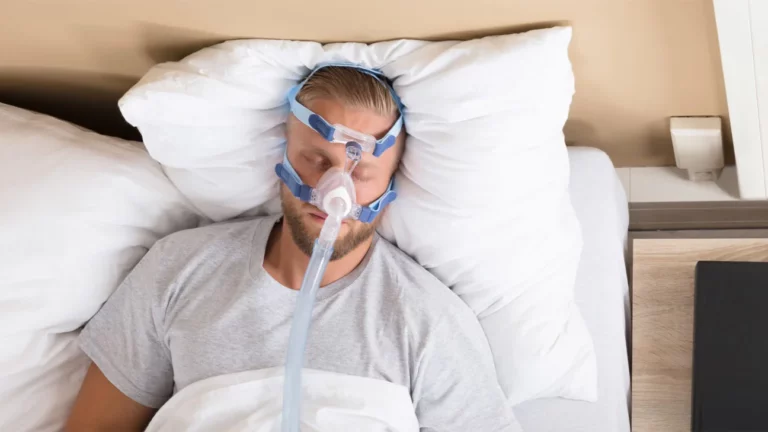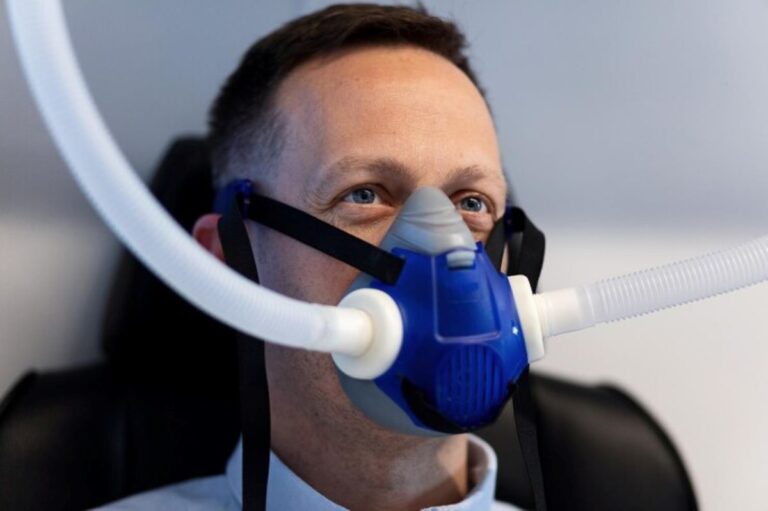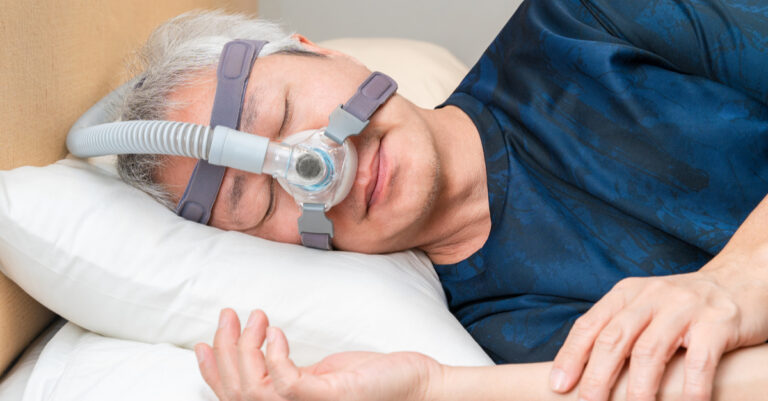Snoring is a common issue that affects millions of people, often causing disruptions in both the individual’s sleep and that of their partner. While snoring is frequently dismissed as a minor annoyance, it can actually be a sign of a more serious underlying condition—sleep apnea. One of the most effective treatments for sleep apnea, and in some cases, snoring, is the use of CPAP (Continuous Positive Airway Pressure) machines. These devices help improve sleep quality, reduce snoring, and can significantly enhance overall health. In this article, we will explore how CPAP machines work, how they help with snoring, and everything you need to know about choosing and using one.
Introduction
CPAP machines are primarily used to treat sleep apnea, a condition where a person’s breathing repeatedly stops and starts during sleep. These interruptions are often caused by a blockage of the airway, leading to poor sleep quality and various health risks. CPAP machines work by providing a continuous stream of air through a mask to keep the airway open, ensuring uninterrupted breathing throughout the night. Not only do they help with sleep apnea, but they also offer significant relief for snoring, which is a common symptom of the condition.
What is Sleep Apnea and How CPAP Machines Help
Sleep apnea is a sleep disorder that occurs when a person’s airway becomes partially or completely obstructed during sleep, causing breathing pauses. These pauses can last anywhere from a few seconds to minutes and can happen many times throughout the night. The main types of sleep apnea include:
See more: Why You Should Consider Buying CPAP Masks Online for Greater Convenience
- Obstructive Sleep Apnea (OSA): The most common type, occurring when the muscles in the back of the throat relax too much and block the airway.
- Central Sleep Apnea: This happens when the brain fails to send the proper signals to the muscles that control breathing.
- Complex Sleep Apnea: A combination of both obstructive and central sleep apnea.
CPAP machines are primarily used to treat Obstructive Sleep Apnea (OSA). They work by delivering a constant flow of air through a mask that helps to keep the airway open, preventing it from collapsing. This consistent airflow reduces the number of apnea events, leading to better sleep and reducing the risks associated with untreated sleep apnea, including cardiovascular problems.
CPAP therapy can also address snoring, a common symptom of OSA. When the airway is obstructed, it causes vibrations in the throat, which result in the sound of snoring. By keeping the airway open, CPAP machines stop these obstructions, eliminating or significantly reducing snoring.
Types of CPAP Machines
CPAP machines come in several types, each suited to different needs. Here’s a breakdown:
- Standard CPAP (Continuous Positive Airway Pressure):
- How it Works: Delivers a constant flow of air at a fixed pressure to keep the airway open.
- Benefits: Simple to use, effective, and typically the most affordable option.
- Limitations: Fixed pressure may not accommodate fluctuations in the user’s breathing needs.
- Auto-CPAP (Auto Adjusting CPAP):
- How it Works: Automatically adjusts the air pressure based on real-time changes in breathing patterns.
- Benefits: Offers more personalized treatment, adjusting the pressure to match the individual’s needs throughout the night.
- Limitations: More expensive than standard CPAP machines.
- BiPAP (Bilevel Positive Airway Pressure):
- How it Works: Provides two levels of pressure—one for inhalation and a lower one for exhalation.
- Benefits: Ideal for individuals with complex sleep apnea or those who struggle to exhale against a continuous pressure.
- Limitations: More costly and complex than standard CPAP machines.
How to Choose the Right CPAP Machine
Choosing the right CPAP machine is crucial for both comfort and effectiveness. Consider these factors when selecting a CPAP machine:
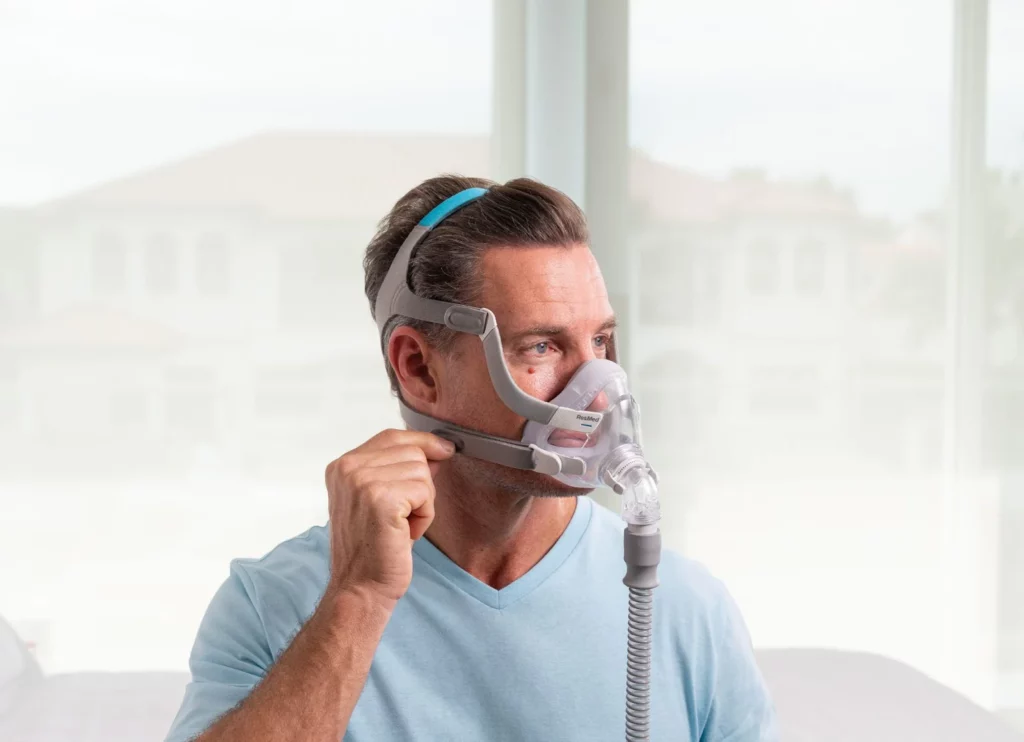
- Comfort: Choose a machine with adjustable settings such as a ramp function, which gradually increases air pressure, and various mask options to ensure comfort.
- Noise Level: CPAP machines can sometimes be noisy. If you are sensitive to sound, look for quieter models, especially newer ones designed for minimal noise.
- Portability: If you travel frequently, a compact and lightweight CPAP machine is essential for ease of use on the go.
- Price: Standard CPAP machines are generally the most affordable, while Auto-CPAP and BiPAP machines come with higher price tags due to their advanced features.
Consulting with your doctor is key to determining the most suitable CPAP machine for your needs.
CPAP Machine Setup and Usage
Setting up your CPAP machine properly is essential for optimal use. Here’s how you can set it up:
- Unbox and Assemble: Begin by connecting the CPAP machine to the power source. Attach the tubing to the machine and mask. If your machine includes a humidifier, ensure that the water chamber is filled with distilled water.
- Adjust the Settings: For standard CPAP machines, your doctor will have set the prescribed air pressure. For Auto-CPAP machines, the pressure will adjust automatically based on your breathing.
- Fit the Mask: Choose the mask that fits comfortably. Masks come in different styles, such as nasal masks, full-face masks, and nasal pillows.
- Start Using the Machine: Turn the machine on and begin using it every night. Consistency is key to achieving the best results with CPAP therapy.
Troubleshooting Tips:
- Air Leaks: If you notice air leaking from the mask, adjust the mask’s fit or consider switching to a different mask.
- Dry Mouth: Use a heated humidifier or switch to a full-face mask to prevent dry mouth from breathing through the mouth.
- Noisy Machine: Ensure that the CPAP machine is on a stable surface to minimize noise.
CPAP Machine Accessories and Maintenance
Maintaining your CPAP machine and its accessories is crucial for continued effectiveness and hygiene. Key accessories include:
- Masks: Clean your mask daily with mild soap and warm water. Replace the mask every 6 to 12 months.
- Tubing: Clean the tubing weekly to avoid mold and bacteria buildup. Replace it every 6 to 12 months.
- Filters: Replace the air filters regularly, typically every month, to ensure clean airflow.
- Humidifiers: If your CPAP machine has a humidifier, clean it regularly to prevent bacteria or mold buildup.
Regular maintenance helps prolong the life of your CPAP machine and ensures that you continue to receive optimal treatment.
Benefits of Using a CPAP Machine
CPAP machines provide numerous health benefits that go beyond just improving sleep:
- Improved Sleep Quality: By preventing interruptions in breathing, CPAP machines allow for deeper and more restorative sleep.
- Reduced Risk of Heart Disease: Sleep apnea is associated with an increased risk of heart disease, stroke, and high blood pressure. CPAP therapy helps mitigate these risks by ensuring adequate oxygen levels during sleep.
- Improved Daytime Energy: CPAP therapy helps reduce daytime fatigue, increasing energy, focus, and mood.
- Reduced Snoring: One of the key benefits of CPAP therapy is its ability to reduce or eliminate snoring, leading to better sleep quality for both the user and their partner.
Common CPAP Machine Problems and How to Solve Them
While CPAP machines are highly effective, users may experience some common problems. Here’s how to address them:
- Air Leaks: Ensure the mask is snug and properly positioned. Adjust the straps for a better fit or try a different mask style.
- Dry Mouth: Use a heated humidifier to add moisture to the air or opt for a full-face mask to prevent mouth breathing.
- Discomfort: Try different types of masks and experiment with cushion pads for added comfort.
Cost of CPAP Machines and Insurance Coverage
CPAP machines vary in price depending on the model and features:
- Standard CPAP Machines: Typically cost between $200 and $800.
- Auto-CPAP Machines: Range from $500 to $1,500.
- BiPAP Machines: Generally cost $1,000 or more.
Insurance Coverage: Many insurance providers cover the cost of CPAP machines when they are prescribed by a doctor. Be sure to check with your insurance provider for details on coverage and any out-of-pocket expenses.
Conclusion
CPAP therapy is a highly effective treatment for sleep apnea and can significantly reduce snoring, improve sleep quality, and enhance overall health. With the right CPAP machine, proper setup, and regular maintenance, you can achieve the best results from your therapy. If you’re struggling with snoring or suspect you have sleep apnea, consult your healthcare provider to determine if CPAP therapy is the right solution for you. By investing in your sleep health, you can experience better rest, improved energy, and a reduced risk of serious health issues.

